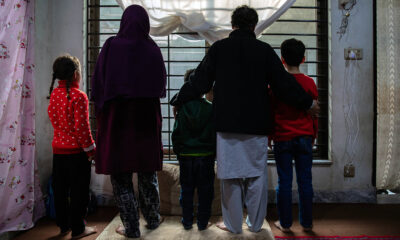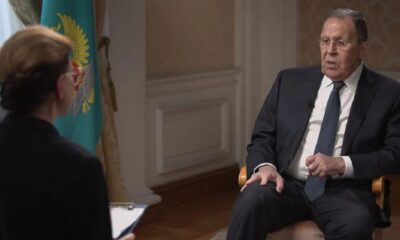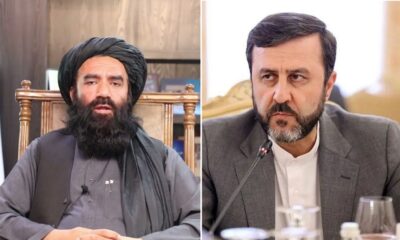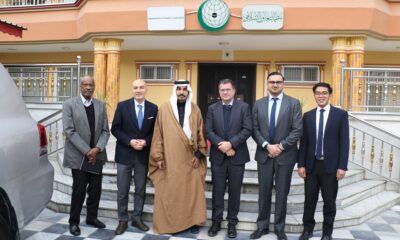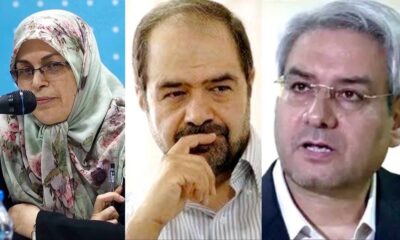Latest News
IEA bans female NGO staff, jeopardizing aid efforts

Islamic Emirate of Afghanistan (IEA) on Saturday ordered all local and foreign NGOs to stop female employees from working, in a move the United Nations said would hit humanitarian operations just as winter grips a country already in economic crisis.
A letter from the economy ministry, confirmed by spokesperson Abdulrahman Habib, said female employees of non-governmental organisations (NGOs) were not allowed to work until further notice because some had not adhered to the administration’s interpretation of Islamic dresscode for women, Reuters reported.
It comes days after the Islamic Emirate ordered universities to close to women, prompting global condemnation and sparking some protests and heavy criticism inside Afghanistan.
Both decisions are the latest restrictions on women that are likely to undermine the IEA’s efforts to gain international recognition and clear sanctions that are severely hampering the economy, read the report.
US Secretary of State Antony Blinken said on Twitter he was “deeply concerned” the move “will disrupt vital and life-saving assistance to millions,” adding: “Women are central to humanitarian operations around the world. This decision could be devastating for the Afghan people.”
Ramiz Alakbarov, the UN deputy special representative for Afghanistan and humanitarian coordinator, told Reuters that although the UN had not received the order, contracted NGOs carried out most of its activities and would be heavily impacted.
“Many of our programmes will be affected,” he said, because they need female staff to assess humanitarian need and identify beneficiaries, otherwise they will not be able to implement aid programs.
International aid agency AfghanAid said it was immediately suspending operations while it consulted with other organisations, and that other NGOs were taking similar actions, Reuters reported.
The potential endangerment of aid programmes that millions of Afghans access comes when more than half the population relies on humanitarian aid, according to aid agencies, and during the mountainous nation’s coldest season.
“There’s never a right time for anything like this … but this particular time is very unfortunate because during winter time people are most in need and Afghan winters are very harsh,” said Alakbarov.
He said his office would consult with NGOs and UN agencies on Sunday and seek to meet with IEA authorities for an explanation.
Aid workers say female workers are essential in a country where rules and cultural customs largely prevent male workers from delivering aid to female beneficiaries.
“An important principle of delivery of humanitarian aid is the ability of women to participate independently and in an unimpeded way in its distribution so if we can’t do it in a principled way then no donors will be funding any programs like that,” Alakbarov said.
When asked whether the rules directly included UN agencies, Habib said the letter applied to organisations under Afghanistan’s coordinating body for humanitarian organisations, known as ACBAR. That body does not include the UN, but includes over 180 local and international NGOs.
Their licences would be suspended if they did not comply, the letter said.
Afghanistan’s struggling economy has tipped into crisis since the IEA took over in 2021, with the country facing sanctions, cuts in development aid and a freeze in central bank assets.
A record 28 million Afghans are estimated to need humanitarian aid next year, according to AfghanAid.
Latest News
Pakistan to repatriate nearly 20,000 Afghans awaiting US resettlement
Authorities will also share verified data of the affected individuals with relevant departments to support implementation.
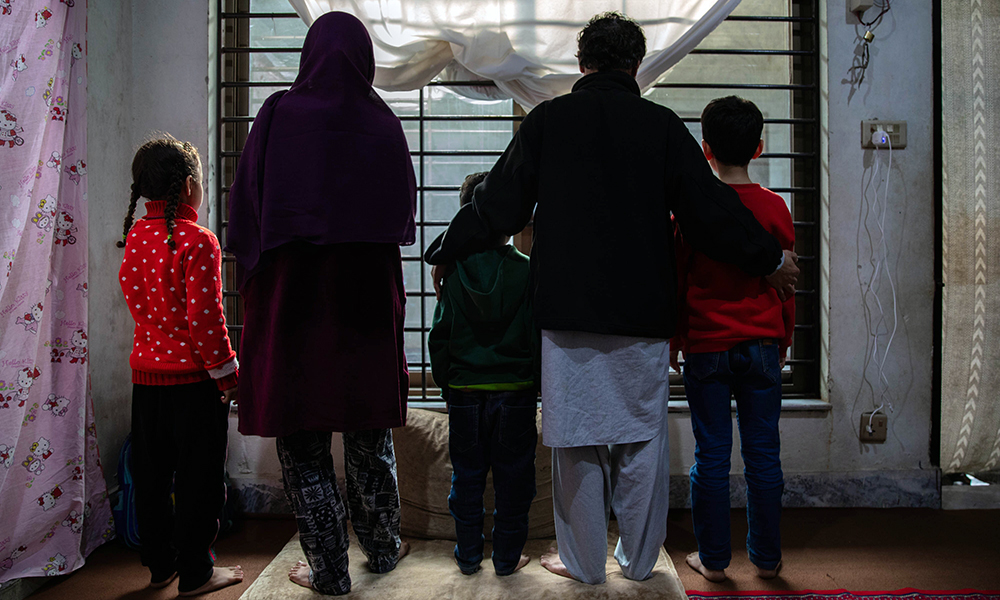
Pakistan will repatriate nearly 20,000 Afghan nationals currently awaiting resettlement in the United States, The Nation reported, citing official sources.
The move affects 19,973 Afghans living across Pakistan.
A federal directive will instruct provincial chief secretaries and police chiefs in Punjab, Sindh, Khyber Pakhtunkhwa, Balochistan, Azad Kashmir, Gilgit-Baltistan, and the Islamabad Capital Territory to begin the repatriation process immediately.
Authorities will also share verified data of the affected individuals with relevant departments to support implementation.
Following the Islamic Emirate’s return to power in 2021, more than 100,000 Afghans fled to Pakistan, many of whom had worked with the US and UK governments, international organizations, or aid agencies.
Thousands have remained stranded in Pakistan for over four years while awaiting US resettlement clearance.
Prospects for relocation have dimmed amid a suspension of case processing by the US administration, according to The Nation.
Under Pakistan’s Illegal Foreigners Repatriation Plan (IFRP), all Afghan nationals still awaiting US relocation will now be returned to Afghanistan.
Latest News
Terrorist activities observed along Afghanistan borders, says Lavrov
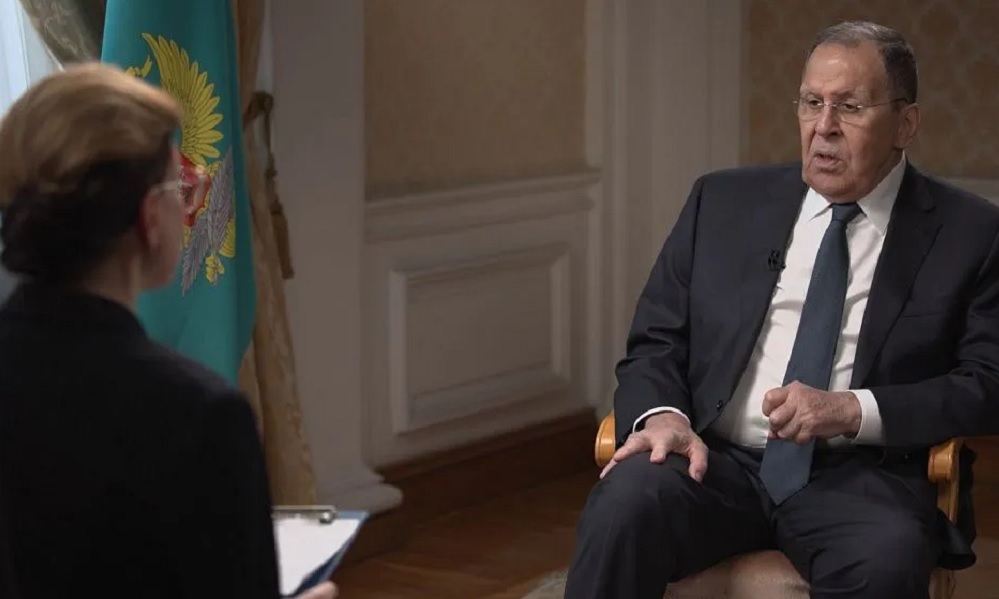
Terrorist activities continue to be observed along Afghanistan borders and along the India–Pakistan–Afghanistan corridor, Russian Foreign Minister Sergei Lavrov said in an interview published on Monday.
Speaking to Russia-based media outlet TV BRICS, Lavrov pointed to ongoing concerns in the Middle East, including its Asian regions.
He highlighted the importance of collaboration with India at the United Nations to advance a global counter-terrorism convention.
Lavrov stated that while the draft convention has already been prepared, consensus on its adoption has not yet been reached.
Russia has repeatedly expressed concern about militant threats from Afghanistan. The Islamic Emirate, however, has dismissed the concerns saying that it will not allow Afghanistan’s soil to be used against any country.
Latest News
Afghan border minister holds phone talks with Iran’s deputy foreign minister
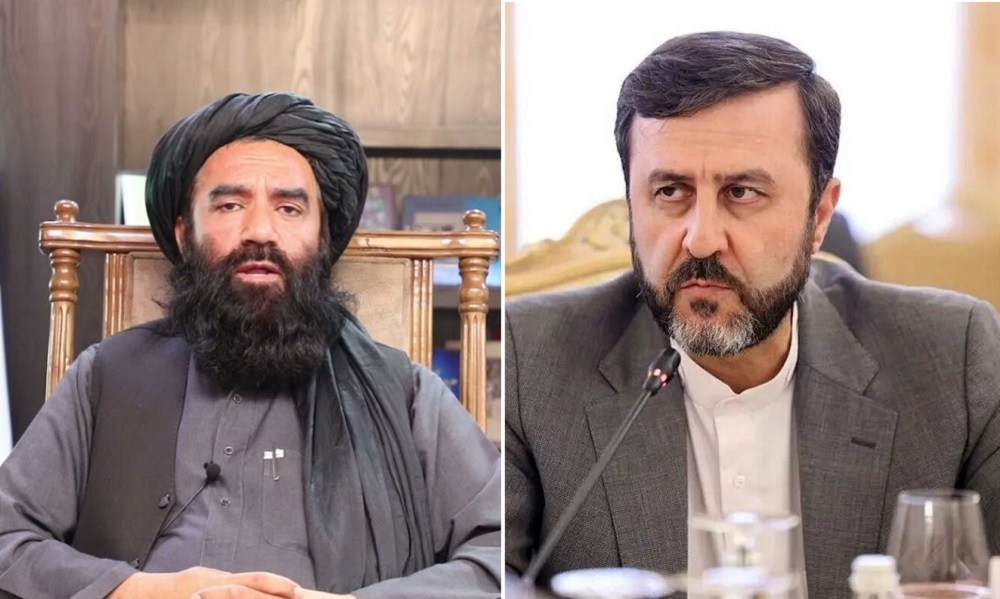
Noorullah Noori, Afghanistan’s Minister of Borders and Tribal Affairs, held a phone conversation with Kazem Gharibabadi, Iran’s Deputy Foreign Minister for Legal and International Affairs, to discuss bilateral border cooperation.
According to the Iranian news agency IRNA, both sides reaffirmed their commitment to strengthening border collaboration, with a particular focus on the ongoing renovation and updating of border markers. They also agreed to accelerate joint technical and legal meetings to enhance coordination.
As part of the agreement, the next meeting of senior border officials from Afghanistan and Iran is scheduled to take place in Iran in 1405 (2026–2027).
-

 Latest News3 days ago
Latest News3 days agoAfghanistan to grant one- to ten-year residency to foreign investors
-

 Latest News5 days ago
Latest News5 days agoTerrorist threat in Afghanistan must be taken seriously, China tells UNSC
-

 Sport4 days ago
Sport4 days agoIndonesia shock Japan to reach historic AFC Futsal Asian Cup final
-

 Sport5 days ago
Sport5 days agoMilano Cortina 2026 Winter Olympics: What You Need to Know
-

 Sport3 days ago
Sport3 days agoIran clinch AFC Futsal Asian Cup 2026 in penalty shootout thriller
-
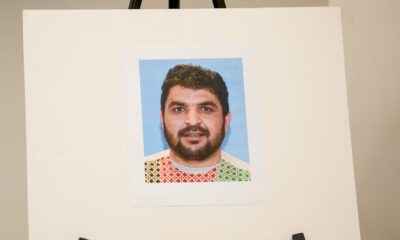
 Latest News5 days ago
Latest News5 days agoUS Justice Department to seek death penalty for Afghan suspect in National Guard shooting
-

 Latest News3 days ago
Latest News3 days agoAfghanistan says Pakistan is shifting blame for its own security failures
-
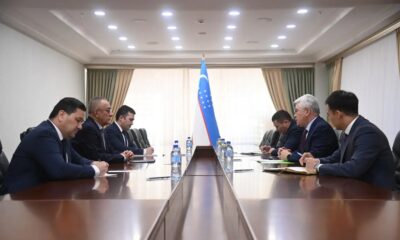
 Latest News5 days ago
Latest News5 days agoUzbekistan, Kazakhstan discuss cooperation on Afghanistan


